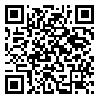Volume 30, Issue 3 (June 2019)
Studies in Medical Sciences 2019, 30(3): 174-186 |
Back to browse issues page
Assistant Professor, Department of Psychology, University of Kurdistan, Sanandaj, Iran (Corresponding Author) , m.zemestan@gmail.com
Abstract: (4675 Views)
Background & Aims: Learning disorder is one of the most common neuro-developmental disabilities in childhood that requires effective interventions.The aim of this study was to compare the effect of tDCS and play therapy on improving attention and psycho-motor function in children with learning disorder.
Matherials & Methods: The present study was a semi-experimental (pre-test and post-test design with control group), and statistical population consisted of all the clients of Saqez educational center learning disorders in the academic year of 2016-2017. The research sample consisted of 30 primary and secondary school students who were selected by simple random sampling. Experimental groups received the intervention for 4 weeks (two sessions per hour per week) and the control group received their daily activities during the interventions. Before and after the end of the interventions, the attention and psycho-motor function of the subjects were measured by the continuous IVA test and Royan Oseretsky's motor test and the data were analyzed using the covariance test.
Results: The findings showed that both methods increased the attention and psycho-motor function in children with learning disorder, but this improvement was more significant in the tDCS method(p<0.05).
Conclusion: According to the findings of this study, parents, teachers, and all therapists are recommended to place tDCS in the educational programs along with therapeutic games.
Matherials & Methods: The present study was a semi-experimental (pre-test and post-test design with control group), and statistical population consisted of all the clients of Saqez educational center learning disorders in the academic year of 2016-2017. The research sample consisted of 30 primary and secondary school students who were selected by simple random sampling. Experimental groups received the intervention for 4 weeks (two sessions per hour per week) and the control group received their daily activities during the interventions. Before and after the end of the interventions, the attention and psycho-motor function of the subjects were measured by the continuous IVA test and Royan Oseretsky's motor test and the data were analyzed using the covariance test.
Results: The findings showed that both methods increased the attention and psycho-motor function in children with learning disorder, but this improvement was more significant in the tDCS method(p<0.05).
Conclusion: According to the findings of this study, parents, teachers, and all therapists are recommended to place tDCS in the educational programs along with therapeutic games.
| Rights and permissions | |
 |
This work is licensed under a Creative Commons Attribution-NonCommercial 4.0 International License. |



